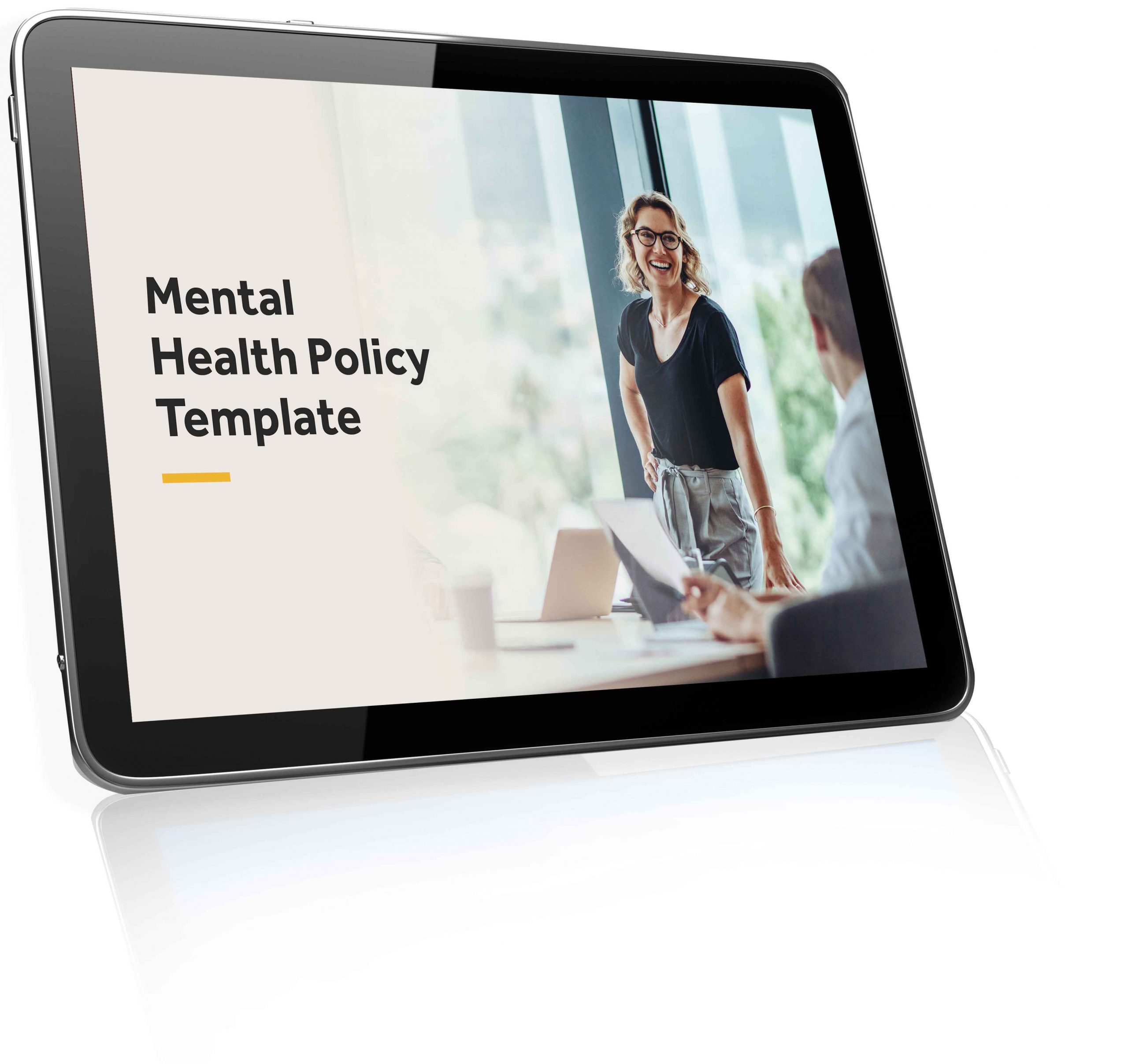
Mental Health Month is in October and Aussie business owners should take a moment to reflect on the effectiveness of their efforts to promote employee well-being. A happy and mentally healthy workforce is known to be more productive, leading to a healthier bottom line. To help you assess your efforts and plan for the future, let’s explore the latest trends and challenges in workplace mental health.
Mental health tech
With devices connecting staff to their jobs 24/7 increasing the risk of burnout, tech is often viewed as a threat to workplace mental health. However, tech can also be a mental health ally.
Many employers are harnessing cutting-edge tech by:
Offering digital counselling: This is a convenient, accessible and confidential way for employees to get help with mental health problems. Digital counselling can be especially beneficial for remote staff who are unable to access traditional face-to-face counselling.
Providing mental health resources: There are now numerous apps and online platforms that provide employees with access to mental health resources. This can take the form of chatbots serving information specific to their issue, to full online therapy programs.
Tracking employee mental health: Technology can be used to track employee mental health data, such as stress levels, sleep quality, and mood. This data can be used to identify employees who may be struggling and provide them with the support they need.
Making data-driven improvements: The same data can also be used by employers to pinpoint what’s working and what isn’t with their mental health initiatives. Employee data allows businesses to make customised changes that maximise the impact of the support they offer.
Inspirational leadership
When it comes to preventing workplace lows, inspiration can come from the top. Many forward-thinking businesses are encouraging leaders and senior management to set the tone by:
Talking openly about mental health: Leaders can normalise the mental health conversation by openly talking about their own experiences and encouraging their employees to do the same.
Practicing self-care: If employees see senior management taking proactive steps to care for their mental health, they are more likely to do this themselves. Rather than being ‘workaholics’, business leaders should strive to be well-being role models.
Encouraging help-seeking: Leaders can actively encourage employees to seek help and provide practical guidance on the steps they need to follow to access any support offered by the business.
Psychosocial hazard awareness
In recent years, identifying and minimising psychosocial hazards has become an integral part of any robust work health and safety policy. Psychosocial hazards are any aspects of work that can have a negative impact on an employee’s mental health and emotional well-being. They include:
Job demands
Lack of control over workload and timelines
Lack of guidance and clarity
Poor change management
Traumatic workplace events
Workplace violence
Conflict and dysfunctional relationships
Remote work and isolation
With awareness on the subject rising, many employers are acknowledging their duty to identify hazards, take reasonable steps to eliminate or reduce them, and provide support to employees who suffer because of psychosocial hazards.

Does your business have a mental health policy?
Employers have an obligation to provide a mentally healthy workplace for everybody. Our FREE template is suitable for most businesses, helping you create a policy that protects your staff and business.
Remote work well-being
It’s clear that remote and hybrid work are here to stay. Remote work can have a number of benefits for employers and employees but can also pose some unique mental health challenges. Remote workers may be more likely to experience feelings of isolation and loneliness. They may also have difficulty setting boundaries between work and personal life, leading to burnout.
Employers can help to mitigate these challenges by:
Regularly communicating: Remote workers need to feel connected to their team and organisation. Employers should hold regular video calls, team meetings, and check-ins.
Expectation setting: Remote workers need to know what is expected of them and when they are expected to be available. They also need to be able to set boundaries between work and personal time.
Encouraging social connections: Remote workers can feel isolated and lonely. Employers can encourage social connection by providing opportunities for remote workers to connect with each other, such as virtual coffee breaks or team-building activities.
Offering online support: For businesses with remote workers, it’s especially important to offer online support and digital resources promoting mental health. Crucially, some of these resources should tackle the psychosocial hazards of remote work specifically.
Destigmatising mental health
Arguably the biggest challenge that employers face is destigmatising mental health in the workplace. When mental health is viewed as a risky subject or a sign of weakness, employees may be afraid to talk about their struggles or seek the support they need.
Employers can help by:
Being open: The first step to normalising mental health issues is to talk about them openly. As mentioned above, business leaders can play a powerful role, demonstrating that mental health issues affect even the most successful people.
Challenging negative stereotypes: Whenever companies discuss mental health, they should make it clear that the challenges are real and can affect anyone, regardless of their age, gender, race, or socioeconomic background. Negative assumptions only furrther complicate an already complicated issue.
Holding awareness events: Ultimately, knowledge is the key to destigmatising workplace mental health. Employers can build empathy among staff by holding mental health awareness events.
At Employsure we pride ourselves on supporting businesses and the people running them. Our trained experts are on hand 24/7 to help you understand your mental health obligations and can provide tailored mental health policies.
Call our FREE Advice Line on 1300 651 415 to find out how we can help you make your workplace happier, healthier and more productive.










